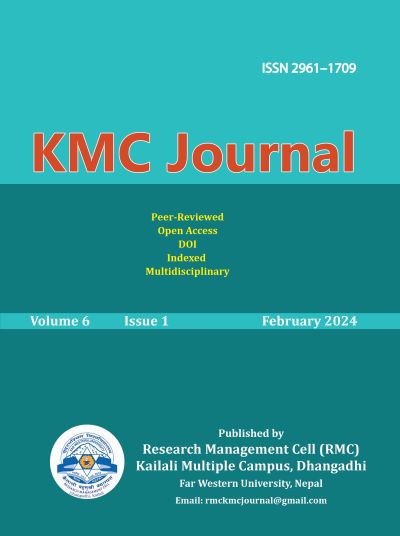Receiving and Implementing In-Service Teacher Training Programmes: Identifying Challenges from Teachers’ Perspectives
DOI:
https://doi.org/10.3126/kmcj.v6i1.62338Keywords:
Teacher training, in-service teacher training, challenges, implementation, teacher educationAbstract
Teachers require continuous professional development to effectively navigate shifts, enhance professional proficiency, and derive job satisfaction. To achieve this, they require sufficient in-service training. In-service teacher training is assumed significant as it equips teachers to confront evolving challenges within the educational landscape. It plays a pivotal role in augmenting their knowledge base, refining subject expertise, assimilating innovative teaching strategies, fostering competencies, and cultivating skills to harness modern technologies which are integral in the field of teaching and learning. However, the delivery and effective implementation of in-service teacher training programmes in the context of Nepal is challenging. This study aims to explore the perceptions of teachers on the significance of in-service teacher training programmes and challenges they face in receiving and implementing them in the classroom in the context of Nepal. Five high school teachers from five schools from Kailali district were selected purposively as the research participants. Data were collected through in-depth and semi-structured interviews. The findings highlight that even though teachers feel that in-service teacher training programmes are significant for effective teaching and learning, an insufficient of experts, inadequate resources, waning motivation, deficient policies, time management challenges, political influences, and financial constraints constitute major hurdles in executing teacher training initiatives. The study further reveals that due to these challenges, teachers struggle to effectively implement the acquired knowledge and methodologies from the training within the constraints of limited time and expansive classroom settings.
Downloads
Downloads
Published
How to Cite
Issue
Section
License

This work is licensed under a Creative Commons Attribution-NonCommercial 4.0 International License.
This license allows reusers to distribute, remix, adapt, and build upon the material in any medium or format for noncommercial purposes only, and only so long as attribution is given to the creator.




